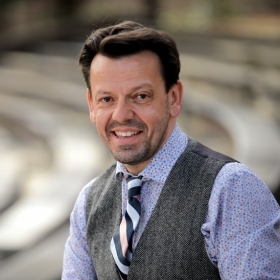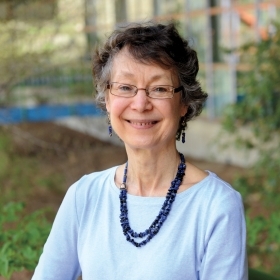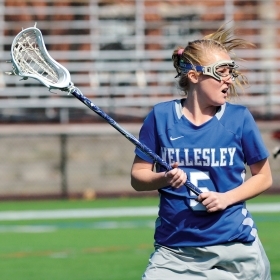It’s hard to imagine anything that doesn’t capture the wide-ranging interests of Nora Mishanec ’14.
“I’ve always been a dilettante,” she laughs. “I like to do everything.” When she was admitted to the College, she thought, “Great, I’ll get to go to Wellesley and explore all these things, and I’ll narrow down my interests. And that didn’t happen at all! Now I’m going out into the larger world, and great, I’m still a dilettante.”
A sampling of Mishanec’s roles since she transferred in as a sophomore includes: admissions assistant; Albright fellow; College Government officer; beekeeper at Olin College; organizer of the first-ever Wellesley College Festival of Dance; and varsity field-hockey player—not to mention psychology major. But perhaps what engaged her most was a two-year project she began in Assistant Professor of History Brenna Greer’s course, The Modern Black Freedom Struggle.
“We talked about how the Civil Rights movement is portrayed and how inadequate that is,” says Mishanec. Greer asked the class to record an oral history—but Mishanec found the process so engaging that she did two, including one with Karen Williamson ’69, who in 1967 was part of a group of students who founded Ethos, which after more than 40 years is still providing political, social, and academic support to students of African descent.
Working at reunion in June 2012, Mishanec was assigned the class of 1957. “I was amazed by the number of women who came back,” she says. “One was Lois Leatherman Driver ’57—the only person of African descent [in the class] back for the reunion. She was one of four who graduated.”
That weekend, Mishanec got to know Driver and her daughter, Candis, who agreed to record an oral history with her mother. “That was the beginning. I started interviewing other women of African descent who graduated around that time.” Now in the Archives are oral histories recorded with Driver, Cecile Kennedy Springer ’54 (master’s degree), Ruth-Arlene Wood Howe ’55, Miriam DeCosta-Willis ’56, Shirlee Taylor Haizlip ’59, and Trudy Martin Hatter ’59.
Mishanec hopes someone will continue the interviews. “My project initially was to look at this gap in the history before Ethos. There are interviews to be done in the early ’50s and the early ’60s. There’s so much more to be canvassed in that period,” she says.








We ask that those who engage in Wellesley magazine's online community act with honesty, integrity, and respect. (Remember the honor code, alums?) We reserve the right to remove comments by impersonators or comments that are not civil and relevant to the subject at hand. By posting here, you are permitting Wellesley magazine to edit and republish your comment in all media. Please remember that all posts are public.